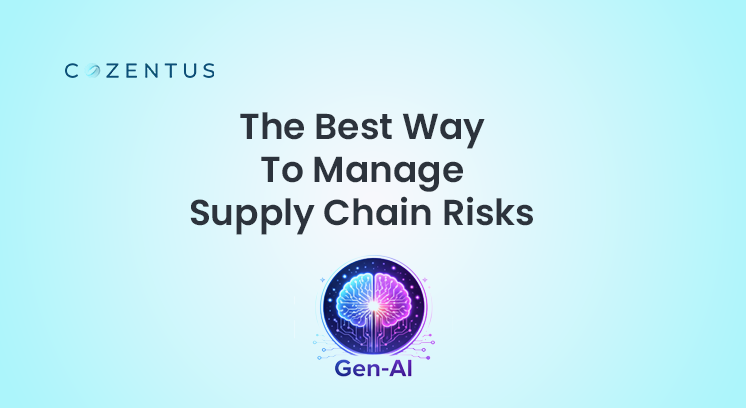Over the last two years, supply chain management has risen to the top of corporate agendas worldwide. The COVID-19 dilemma, post-pandemic economic impacts, and the current turmoil in Ukraine have all highlighted the flaws in today's global supply networks.
Now is the time for forward-thinking executives to future-proof their supply chains, beginning with a master data management (MDM) plan.
Gartner defines MDM as "a technology-enabled discipline in which business and IT collaborate to secure the enterprise's official shared master data assets' uniformity, correctness, stewardship, semantic consistency, and accountability." According to Gartner, MDM benefits enterprises by establishing a "single source of data truth," which leads to improvements across the company.
MDM may assist firms in generating purchase negotiating power, speeding procurement, and decreasing duplicate components, first article inspections, and supplier approvals on the supplier side. These insights also help firms reduce risks by strengthening their supply chains.
MDM equips firms to establish a comprehensive, data-driven reaction in crises by assisting them in understanding risk management variables and defining information criticality horizons, ensuring that their supply chains are under control and ready for the next unusual occurrence.
MDM enables enterprises to get insight into vital information, recognise and predict hazards across departments, and manage appropriately before a catastrophe. Large organisations, for example, obtain materials from a complicated network of suppliers and manufacturers in the inbound supply chain. In turn, each supplier may get its inputs from various sources. What is a diverse supplier base at the first or second tier may have one specialised supplier at the third tier, resulting in a single point of failure that can destabilise the whole supply chain. In the case of a crisis, companies that use MDM can immediately determine which goods depend on which suppliers, the geographic location of suppliers and manufacturers, the availability and procurement of alternative components, and the shipping routes in operation.
What exactly is Master Data?
Master data is a kind of core data that relates to business information that shares throughout an organisation. It comprises structural and hierarchical references that are required for a particular company. It eventually becomes consistent; nonetheless, we need it to update frequently. Data is essential nowadays. When information is handled appropriately, it helps a corporation reach a particular set of objectives by displaying all data, allowing for rapid and accurate access.
Supply chain functions often confront common issues
Despite investing significant time and money, managers need help to smooth their supply chain, even with supply chain management (SCM) technologies. Let us look at some of the frequent issues that organisations experience in the supply chain in the absence of adequate data management.
Order completion
Because SCM has no standard data definition, consumers and merchants may need help to order things based on detailed product information, such as the barcode, price, or size, because it is erroneously recorded into the system.
Distribution and warehousing
When product descriptions do not match the order presented on the system, businesses might suffer significant losses. Because of this oversight, merchandise might return to the warehouse, and distributors can claim exorbitant transportation expenses.
Excess inventory
Overstocking is possible if effective supply chain planning is not implemented. Excess inventory might lead to substantial losses.
MDM's significance in the supply chain system
The primary characteristics that firms want inefficient supply chain management include managing a large number of data, enhancing performance, and consistent data. Adopting a centralised data strategy and supply chain solutions will result in consistent data across departments.
Here's how MDM can help firms do the same
- MDM in the supply chain aids in the centralisation and synchronisation of data across supply chain networks and distributors.
- MDM promotes data openness and uniformity, resulting in cost savings and income creation potential.
- MDM delivers reliable data for predictive and prescriptive analysis, which is critical in inventory management.
- With expanded global potential comes more responsibility. MDM allows for the easy transfer of information and accessibility across supply networks, boosting cooperation between internal and external stakeholders.
- MDM in the supply chain provides firms with a competitive advantage by ensuring adequate data management and offering a comprehensive operations perspective.
MDM allows supply chain managers to build a detailed inventory strategy depending on location, region, or customer. It also aids in the resolution of issues such as frequent stock-outs or overstock, the return of defective items, and order fulfilment metrics.
Bottom Line
An MDM designed on a consolidated, scalable, and unified platform connects master data across many domains, eliminating silos and seamlessly integrating information across systems. It may provide a single platform for all suppliers to manage product data and continually enhance overall management. For more information regarding MDM, and similar supply chain visibility solutions, visit Cozentus.
Recent Post
Subscribe to our newsletter
Stay updated on latest trends and news in the supply chain and logistics industry








